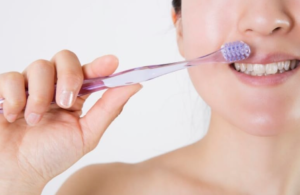Brushing in the morning, brushing after meals, brushing before going to bed… It was a long time ago that ‘3 minutes after meals’ was the basis. Brushing teeth right after meals is now considered to be counterproductive and effective in preventing cavities with easier care. I will explain the timing and frequency of effective toothpaste in an easy-to-understand way.
Toothpaste right after meal is counterproductive?
The latest toothpaste trend.
I’ve come to think that brushing my teeth once a day is okay.
Not long ago, it was said that the basic of brushing teeth was ‘brushing for three minutes three times a day, within three minutes after meals’. I think this is a very good teaching method that is easy for anyone to understand because it was thought that it would be difficult to become a decayed tooth if the dirty teeth were cleaned right away in the meal.
But there’s actually a little bit of a contradiction to this. The answer is not “from 3 minutes after meal,” but “from 3 minutes after meal.”
In addition, three minutes after the meal, the plaque is already active and the tooth enamel is starting to melt, and the tooth itself is also melted due to the consumption of acidic food.
Therefore, considering these, it is not simple to think about the best time to brush your teeth. The rule of how many minutes to brush is likely to be ambiguous, and the later it is, the better it is until the saliva is restored. As a result, if you think it is the best after 30 to 4 hours after meals, you will have trouble brushing your teeth realistically. Let me introduce you to where to make a compromise by looking at the next item.
Is ‘once a day’ enough for the number of toothpastes effective for preventing cavities?

Previously, it was recommended to brush your teeth three times a day for three meals a day. But recently, as mentioned above, the time that plaque actually melts teeth by acid is drawing attention. In fact, even if you use plaque acid, it takes about 24 hours to make a hole in your teeth. Of course, it neutralizes and regenerates by saliva at the same time. So if I could brush my teeth properly within 24 hours, I could have done what I needed to prevent cavities that day.
And especially the decayed teeth progress during bedtime when saliva secretion decreases. It is difficult to neutralize and regenerate enamel during bedtime, so it is easy to increase ash loss due to acid. Deashing is the dissolution of minerals from the surface of a tooth. So I came to think, “Once a day, if you brush your teeth well before going to bed at night, you won’t get a cavity.”
I would like to finish by asking the question, “Can’t I do it twice?” or “Can I polish it too much?”
Keep going on the next page